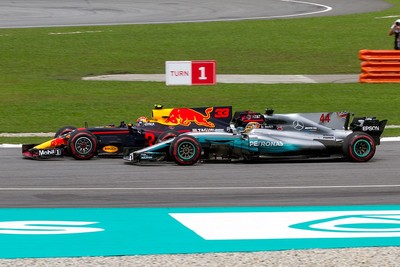
For a sport with so many races and so many points on offer, it’s amazing to see how many F1 campaigns have ended in a last race shootout for the drivers’ title.
And that’s a situation that will conclude the 2021 season as well, with Lewis Hamilton and Max Verstappen – fast becoming bitter enemies on the track in the time-served fashion of championship rivals of years gone by – locked on 369.5 points, with just the Abu Dhabi Grand Prix to come.
All of which means that the title race could be determined by just a solitary point, confirming this to be one of the closest and best-fought campaigns in F1 history.
To make things all the more interesting for spectators, both Hamilton and Verstappen have been deploying a few dirty tricks as their rivalry heats up – with the Dutchman in particular delivering a performance racked with danger and almost desperation at the penultimate GP in Saudi Arabia – Hamilton labelling him ‘f***** crazy’ and ‘over the limit’ following their tussle in the Gulf.
The scene is set perfectly for the concluding race in Abu Dhabi, but where does the 2021 season rank in terms of F1’s tightest title battles and last race deciders?
1976: James Hunt vs Niki Lauda (1 point)
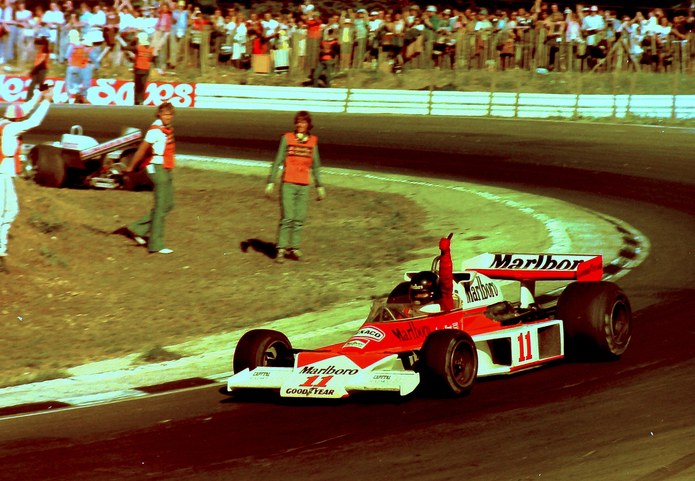
Anyone that has seen the film Rush will already be familiar with the 1976 F1 season, which saw its two main protagonists – James Hunt and Niki Lauda – produce a rivalry that saw tears shed and blood spilt.
Hunt was the dashing and suave Brit who carved himself a niche as motor racing’s cool anti-hero, while Lauda was the calm, calculating Austrian that was the antithesis of Hunt’s carefree approach.
It was a complete clash of personalities and driving styles, and that somehow made the campaign all the more captivating. The duo would collide so violently that both would be disqualified from races as their rivalry looked set to spiral out of control, and at the German Grand Prix the pair’s intensity spilled over in the most horrific way.
Lauda, hellbent on retaining his title, spun off at the Nurburgring, and the crash caused his Ferrari to burst into flames – horrified onlookers assuming the worst.
But Lauda somehow survived, and not only that he returned to complete the 1976 season – racing with his face heavily bandaged to protect the wounds suffered in Germany.
That seemed to spur on Hunt, who with wins in the USA and Canada was to gain the advantage that would seem him clinch the driver’s title by just a solitary point.
As so often seems to be the way with these things, Hunt and Lauda would go on to become good friends before the former’s tragic death from a heart attack aged 45 in 1993.
1994: Michael Schumacher vs Damon Hill (1 point)
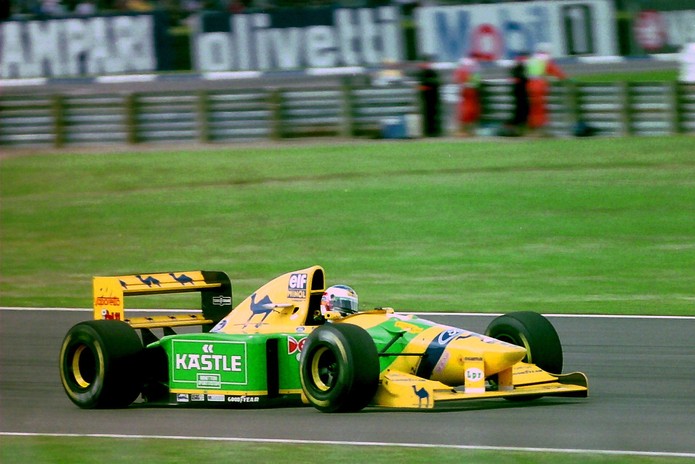
The 1994 season was memorable to say the least, but not always for the right reasons – the horrendous deaths of Ayrton Senna and Roland Ratzenberger a stark reminder of how dangerous the sport of F1 is.
The title race was a titanic battle that pitched the young upstart Michael Schumacher against the wily veteran Damon Hill, and that point of difference – to which the ‘Germany vs England’ narrative also played a part – led to these fairly placid characters to become bitter rivals as well.
Schumacher started the campaign in peerless fashion, winning six of the first seven races to open up what many assumed would be an unassailable lead even at that early stage.
But Hill would rally, starting with his home Grand Prix at Silverstone, before wins in Italy, Belgium and Japan set the final race in Australia up perfectly – Schumacher holding a one-point lead heading down under.
If neutrals wanted a fitting finale, they surely got one. Schumacher and Hill collided on the 35th lap, with the German seemingly turning into the Brit on purpose to force him off the track – a claim Schumacher would later deny.
The crash caused severe damage to both vehicles, and both men were forced to retire from the race – leaving Schumacher to claim the first of his seven world titles.
2007: Kimi Raikkonen vs Lewis Hamilton & Fernando Alonso (1 point)
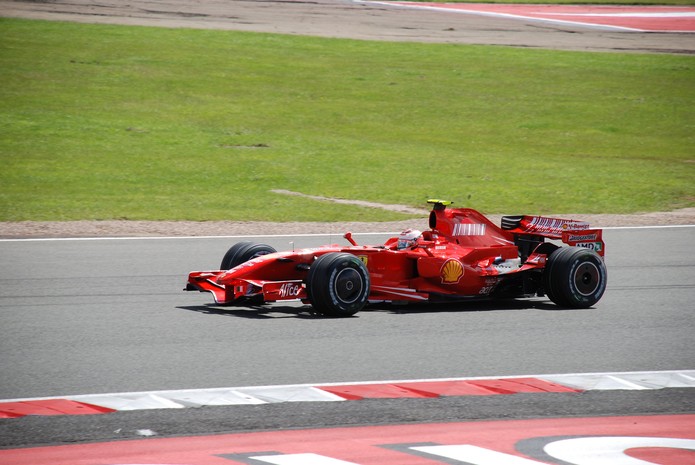
The only instance in F1 history in which three drivers have been separated at the top of the standings, it was Kimi Raikkonen who did just about enough to squeak home in the 2007 title race.
It was a fascinating contest, with the cool Raikonnen barely garnering a column inch die to the heated rivalry between McLaren teammates Alonso and Hamilton, who seemed desperate to prevent the other from winning the title as much as anything else.
In the first half of the season, Raikkonen won three races and Hamilton and Alonso two apiece, and the trio could barely be separated.
But the Finn accelerated, if you’ll pardon the pun, during the second half of the campaign, and nine podium finishes in the last ten races – including five wins – were enough for him to see off the threat of the increasingly frenzied McLaren pair.
Incredibly, Raikkonen only led the championship twice – after the first race and, ultimately, after the last – as Hamilton’s poor end to the term cost him a maiden world title.
1984: Niki Lauda vs Alain Prost (1/2 point)
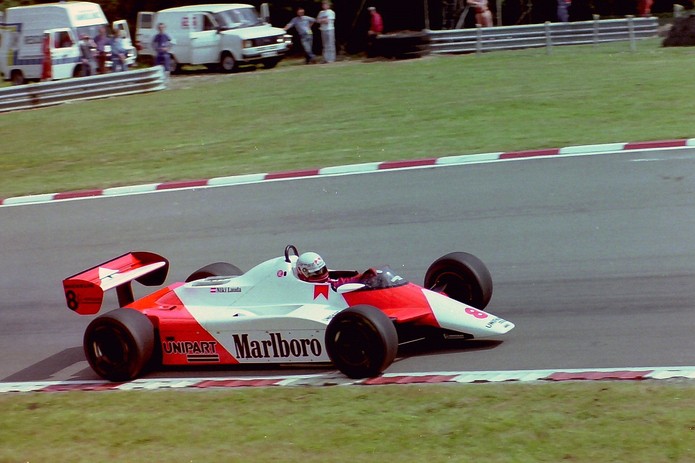
If anyone thought the events of 1976 would dent Lauda’s competitive spirit, they were wholly mistaken – his run to the 1984 title was testament to that.
Like the Alonso-Hamilton battle that would follow them two decades later, Lauda and Prost were McLaren teammates who seemed to thrive on keeping their friends close, but their enemies closer.
While their rivalry was better natured, Lauda and Prost were still differing personalities that opted to go about their business in opposite ways – Prost pushing his McLaren to the limit for sheer speed, while Lauda – showcasing all his experience – focused on the tactical side of race day.
And it would pay dividends. The Austrian became the first man to win the F1 title without claiming a single pole position, but his consistency ensured he would finish outside of the podium just once all season long.
The aggressive style of Prost meant that he was more an all-or-nothing driver, and in the end he could only watch as Lauda lifted the trophy despite himself winning the season-ending Portuguese Grand Prix.
Given that he would go on to win four drivers’ championships of his own, perhaps Prost will look back on losing the 1984 campaign by just half-a-point as a blessing in disguise.